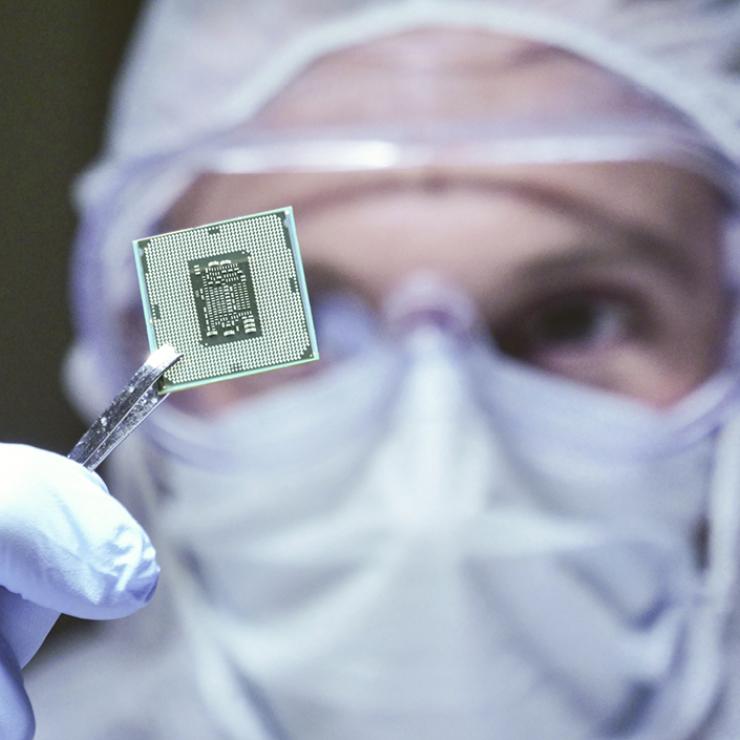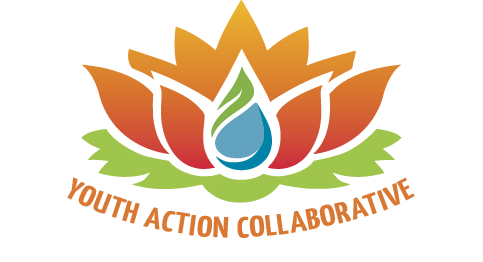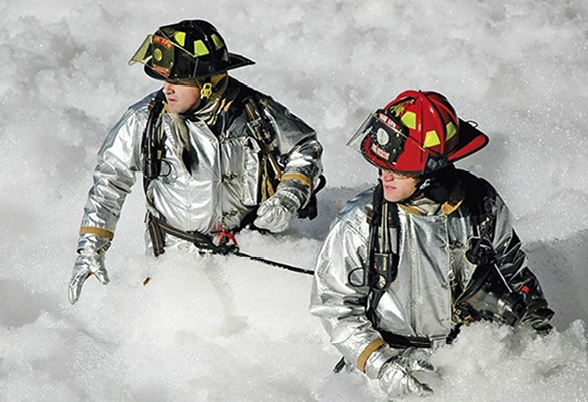In This Issue
- Clean Water Action Leading on PFAS
- Progress on Climate Justice
- Nano Technology: Industrial Revolution 2.0
- Join the Youth Action Collaborative
- Safe Cleaning and Disinfecting
- Let Us Breathe
- We All Live Downstream: The Clean Water Action Podcast
- Reducing Transportation Emissions to Address Environmental Injustices
- Big Gains on PFAS in Connecticut
- Rhode Island Makes Progress on Climate Change
- Download the PDF of this issue
Massachusetts
Clean Water Action Leading Action on PFAS
PFAS chemicals are…everywhere. In drinking water, oceans, and groundwater. In soil, compost, and landfills. In the Arctic, distant Pacific islands, and here in the United States. PFAS stands for per- or polyfluoroalkyl substances, a class of chemicals which did not exist before being synthesized by 3M in the 1940’s. These man-made substances are now in the blood of 98% of those who have been tested. A recently released study in Seattle found PFAS in the breast milk of 100% of women, at levels between 50 parts per trillion (ppt) and 1,850 ppt, much higher than the 20 ppt that Massachusetts has determined to be safe in drinking water.
There are more than 9,000 PFAS chemicals, 600 of which are used in products that many of us use on a regular basis. All PFAS are incredibly persistent, which is why they are known as “forever chemicals.” PFAS have one of the strongest bonds in organic chemistry which means they never fully break down, lasting in the environment for tens of thousands of years. They also take years to exit our bodies.
PFAS are powerful immunosuppressants that increase the risk of testicular, kidney and pancreatic cancer, liver diseases like colitis, thyroid disease, endocrine disruption, autoimmune disorders, and reproductive problems.

The European Union has committed to eliminating all PFAS that are not essential for health and safety. Across the U.S., states have begun taking action, banning PFAS in firefighting foam, food packaging, carpets, and ski wax. Other states have filed suit against 3M, Dupont and other manufacturers who profited from the sale of PFAS, and PFAS-containing products, while failing to reveal early in-house studies, showing that PFAS could cause cancer and birth defects.
In Massachusetts, Clean Water is leading a coalition of partners to ban these toxic chemicals in food packaging and to eliminate their use in carpets, furniture textiles, car seats, personal care products, and cookware.
In food packaging, PFAS is added to fast food wrappers, take out containers, molded fiber bowls and “clamshells”, microwave popcorn bags and bakery bags. These items are used for a few minutes, then dropped in landfills or compost, where the PFAS remains as the packaging breaks down, contaminating compost — and plants, when the compost is applied — or leaching out of landfills.
PFAS is widely used to stainproof or waterproof carpets and furniture textiles, with the air in carpet and furniture showrooms often having high levels of PFAS. PFAS is in some foundation, mascara, dental floss and even menstrual underwear. Most non-stick cookware has PFAS. As consumers have increasingly been concerned about media reports on PFAS, some businesses advertise their cookware as PFOA or PFOS-free, not revealing that the product usually contains other PFAS.
While Clean Water is working to pass bills that bans these specific uses, we are also encouraging the newly seated Massachusetts Interagency PFAS Task Force to consider more comprehensive action to ban all PFAS, modelled on the EU approach.
Meanwhile, Clean Water Action is supporting our friends at the Professional Fire Fighters of Massachusetts, who are advocating for legislation that requires the removal of PFAS from firefighter gear. We also are working with and supporting Public Employees for Environmental Responsibility, as they advocate for a bill that would prevent Massachusetts officials from using PFAS-containing pesticides as part of the state’s mosquito control program.
Tackling widespread PFAS contamination will be complex and expensive, but one thing is clear, if we keep using PFAS, PFAS will continue to contaminate us.
Progress on Climate Justice
On March 26, 2021, Gov. Baker signed An Act Creating a Next Generation Roadmap for Massachusetts Climate Policy into law. The bill is a broad climate policy that includes new goals for reducing emissions, authorization for offshore wind projects, and new energy efficiency building codes. Most importantly, after years of demands from local leaders and activists for strong environmental justice legislation, the Next Generation Roadmap includes an entire section that prioritizes the needs of environmental justice (EJ) communities.
Getting the bill over the finish line was a real rollercoaster. The bill was passed by the legislature in the final days of the 2020 session but vetoed by Gov. Baker. It was brought back to the table in 2021. Representatives and advocates pushed hard for a strong bill that would require interim 50% reductions in greenhouse emissions by 2030 (on the way to net zero by 2050) and protect environmental justice communities. In a rare burst of speed, the Senate and the House passed the bill again, and after a round of amendments to the bill from the Governor were accepted by the legislature, Baker signed the bill into law.
The Next Generation Roadmap is an extraordinary win for marginalized populations in Massachusetts because it will increase outreach efforts to EJ communities in an effort to stop the siting and permitting of any projects that could negatively impact their health. The bill details the need for increased participation and public hearings in Black, Indigenous and communities of color and low-income families. In addition, it highlights the importance of having timely public notices, translation services, and accessible information for these communities.
The new law outlines the actions the administration must take to achieve net zero emissions by 2050, including offshore wind energy transmission, energy storage capacity in buildings, and more electric vehicles and charging stations.
With that victory won, what’s next for climate justice? A new 3-year plan for energy efficiency in Massachusetts is in the works, and Clean Water Action is calling on the Baker administration to prioritize access to MassSave — the energy efficiency program — in underserved neighborhoods. MassSave is designed to work with all residents to improve their energy efficiency, ultimately cutting energy expenses and limiting carbon emissions, but all too often it leaves out renters, people who are not English speakers, and low income residents.
TAKE ACTION today! Ask Gov. Baker and Lt. Gov. Polito to remove barriers to energy efficiency for underserved and language isolated communities across Massachusetts. Sign the petition HERE!
Nanotechnology: Industrial Revolution 2.0

The world is nearly 20 years into an industrial revolution, one that some scientists think will change society as much as the discovery of electricity or the dawn of the digital age. It’s the nano-revolution, the use of nanoscale materials to develop innovative products and technologies.
Nano means one billionth. A nanometer is one-billionth of a meter. A human hair is about 80,000 nanometers thick. At this tiny scale, materials act differently. They may be stronger or more conductive. They may change color. Scientists and entrepreneurs working with nanoscale materials are pushing the boundaries of what is possible — in fields as diverse as medical treatment, energy storage, and structural engineering.
Nanotechnology opens up exciting possibilities, some of which may be life-saving. The coronavirus vaccines employed nanotechnology.
But nano has a potential downside. Materials can be more explosive and flammable at the nanoscale. And they can be more toxic. In some cases, they can slip past the body’s defenses and become lodged deep inside us, in places where man-made materials have never been.
This spring, Clean Water Action worked with Boston University Professor Rick Reibstein to present Nanotechnology: What Municipal Officials Need to Know. This training, which was conducted four times, introduced local first responders, health officials, and planners to the basics of nanotechnology, describing potential hazards and steps that local officials could take to understand and manage risk. Ninety-six state and local officials participated. Most of the local officials had never heard of nanotechnology, did not realize there was a nanotech facility in their town, and had never received any information or instruction about how to address the hazards of nano-materials. Fire officials in particular wanted more information, training and support, especially around flammability and explosivity.
Clean Water Action has used online databases to identify 75 Massachusetts cities and towns that have one or more businesses working in the nanotech sector. There are more than 230 businesses related to nanotechnology, although some may be the financial or management offices for products that are made elsewhere. Most Massachusetts hospitals and universities also have laboratories engaged in nanotechnology manufacturing, research and use.
We hope that our trainings have helped raise awareness and Clean Water will be working to encourage continued conversations with state officials.
Join the Youth Action Collaborative!

Clean Water Action’s 2021 Youth Action Collaborative (YAC) has officially launched! Recruitment for YAC began in January with the goal of bringing together passionate young people who want to plug into critical environmental justice campaigns happening across the state. The YAC has been meeting for the past month and slowly building the team — which currently includes youth from high school to college, from Boston all the way to the Berkshires! Right now Clean Water is focused on making sure there’s a strong youth voice in the campaign for energy efficiency justice. Clean Water Action supports the Green Justice Coalition and the demands that the Baker-Polito administration gives underserved families and renters access to key weatherization and energy efficiency programs. If you’re a young person, or know a young person, who wants to join the fight, you can still sign up to join YAC here. And look out for a podcast featuring YAC on We All Live Downstream!
Safe Cleaning and Disinfecting During COVID
Clean Water Fund is educating workers and residents across Massachusetts on how to safely clean and disinfect to prevent the spread of disease while keeping us safe from toxic chemicals. Use these tips in your home and workplace and visit our website to learn more.
#LetUsBreathe

On May 4th, in honor of World Asthma Day, Clean Water Action organized two powerful asthma justice events — one national and one local, with the Green Justice Coalition — that brought to light the stories of frontline community members and workers that have been impacted by air pollution. Health professionals and grassroots leaders shared their insight on the intersectionality between racial, environmental, and health justice and the need for clean air in environmental justice neighborhoods. We can reduce emissions and protect our communities from air pollution by increasing access to public transit and energy efficiency. To learn more:
Watch the recording of Clean Water Action’s national Town Hall.
Watch Green Justice Coalition’s 30-second clip highlighting #LetUsBreathe rallies from past years.
The Clean Water Podcast: We All Live Downstream
Did you know that Clean Water Action has a podcast? We All Live Downstream is a great way to learn about the issues Clean Water is tacking everyday in an informative yet fun and accessible way. Give it a listen! We recommend you start with episodes 10, 11 and 13 which feature Massachusetts staff members talking about our local campaigns:
Lead in Drinking Water & Social Justice with Associate Massachusetts Director, Maureo Fernández y Mora
Moving Beyond Harmful Flame Retardant Chemicals in Consumer Products with State Director, Elizabeth Saunders and Kathryn Rodgers from Silent Spring Institute
Hazards in the Home: Protecting Our Families From Hidden Toxic Dangers with New England Director, Cindy Luppi and Mike Schade from Safer Chemicals Healthy Families
Connecticut
Climate Action: Reducing transportation emissions and addressing environmental injustices
Like other states, Connecticut needs to do more to address the climate crisis. We must decrease our emissions at a much quicker and steeper pace to meet the state’s medium and long-term climate mitigation targets. And we can’t be successful unless the state puts a focus on transportation. In Connecticut (and generally throughout the region), transportation is the largest source of emissions, accounting for approximately 38 percent of our climate emissions. Additionally, light duty vehicles, and medium and heavy-duty trucks account for approximately 66 percent of the NOx that contributes to our ground level ozone (or smog), a big problem for our communities.
Clean Water Action is working with allies on the Transportation Climate Initiative (TCI) — a major initiative to reduce transportation emissions by placing a cap on wholesale fuel distributors and investing proceeds from the carbon allowance auction into clean transportation and infrastructure. Fifty percent of the auction proceeds annually will go to environmental justice communities and municipalities that have been historically overburdened by polluting sources. TCI also establishes an establishes an equity advisory board to ensure investments have the most meaningful impact.
TCI will result in at least a 26 percent reduction in carbon emissions from transportation between 2022 and 2032. This will also lower emissions of other pollutants and reduce the adverse impacts of asthma, lung diseases and cardiovascular diseases in environmentally distressed communities.
In Connecticut, the concentration of air pollution in the form of particulate matter is on average, 27 percent higher for Latino residents and 30 percent higher for Black residents than for white residents, according to the Union of Concerned Scientists. Clean Water Action is proud to help organize health professionals in support of this important public health policy. Together with CT Nurses Association, the CT Lung Association and youth leader Alex Rodriguez, we hosted a Facebook live event on World Asthma Day highlighting the health benefits of TCI and are working to get health professionals including physicians, nurses, APRNs, nursing and medical assistants and other health advocates on a TCI health advocates letter that will go to legislators urging passage of the bill.
Big Gains on PFAS in Connecticut!

Connecticut made big progress on restricting toxic PFAS chemicals during the 2021 state legislative session! Most Connecticut residents or lawmakers didn’t know much about PFAS until the tragic spill of thousands of gallons of firefighting foam into the Farmington River in June 2019. Since then, Clean Water Action has worked hard to educate residents and policymakers and urge strong action for remediation, expanded monitoring of water sources and other at-risk sites and to restrict further contamination by eliminating PFAS from unnecessary product categories used and sold in CT.
Legislative action stopped in March 2020 due to the pandemic but Clean Water staff continued to meet with agency staff and residents around the state, building a strong coalition of diverse allies. This year, Clean Water Action successfully got two major PFAS bills introduced and voted out of the General Assembly’s Environment Committee. The bills restricted PFAS in food packaging and firefighting foam, require the state to implement a take-back program of foam so that local fire departments do not bear the burden or liability and to identify a fluorine-free foam to be used at all facilities unless required by federal law.
On May 13th the Senate combined both bills and passed them unanimously! We were thrilled that the bill passed both chambers unanimously and is now headed to the Governor’s desk where he is expected to sign it into law.
Rhode Island
Rhode Island Acts On Climate
After nearly a decade of inaction, Rhode Island elected officials took an enormous leap forward to address the climate crisis this spring. On April 10th, Governor Dan McKee signed into law the 2021 Act on Climate bill (S-0078A, H-5445A), establishing mandatory and enforceable economy-wide carbon emissions reductions that will get the state to net-zero emissions by 2050. The legislation updates the 2014 Resilient RI Act, which set emissions reductions of 80% of 1990 levels by 2050. Additionally, it established the state’s Executive Climate Change Coordinating Council (EC4), made up of representatives from executive branch agencies and advised by stakeholders and policy experts.
While lauded at the time, the Resilient RI Act simply wasn’t enough. The EC4 has been under-resourced, and the emissions targets in the law were aspirational and did not reflect the most recent science. For years, lawmakers — many beholden to corporate lobbyists — did nothing to fix these glaring problems, claiming that Rhode Island was too small to make any difference. But in recent years it has become clear that Rhode Islanders want action on climate. Poll after poll shows that they are worried about sea level rise, more frequent and intense storms, and more high-heat days during the summer. Despite this, elected officials dragged their heels when it came to enacting any meaningful climate solutions.
Fortunately, elections matter. In the fall of 2020 Rhode Island voters overwhelmingly elected climate champions to the General Assembly. House and Senate leadership both pledged to make the Act on Climate 2021 act a priority in the 2021 session and the bill sponsors, Senator Dawn Euer and Representative Lauren Carson, moved the legislation early. It passed first through the Senate and then through the House before landing on the governor’s desk for his signature.
In addition to requiring the EC4 to develop a framework for getting the state to net-zero emissions by 2050, Act on Climate 2021 centers equity and environmental justice, and mandates a just transition for workers currently in the fossil fuel industry and related fields. By law, the development of the emissions reduction plan must include input from underrepresented populations, including women; Black, Indigenous, Latinx, and other people of color; veterans; formerly incarcerated people, and people living with disabilities.
The Act on Climate 2021 is already bearing fruit. It has been referenced by lawmakers as they voted to pass complementary legislation. This includes a bill to get Rhode Island to 100% renewable electricity generation by 2030 and bills to reduce single-use plastics (made from fossil fuels) by banning disposable plastic bags and establish an “ask first” policy for plastic straws. As of this writing, these three bills have passed the Senate and are awaiting votes in the House. The law was also referenced by Attorney General Peter Neronha in May in his statement demanding further scrutiny of a proposal to expand a propane shipping terminal in the Port of Providence.
After years of inaction, our state leaders are finally acting swiftly on climate, and not a moment too soon!
